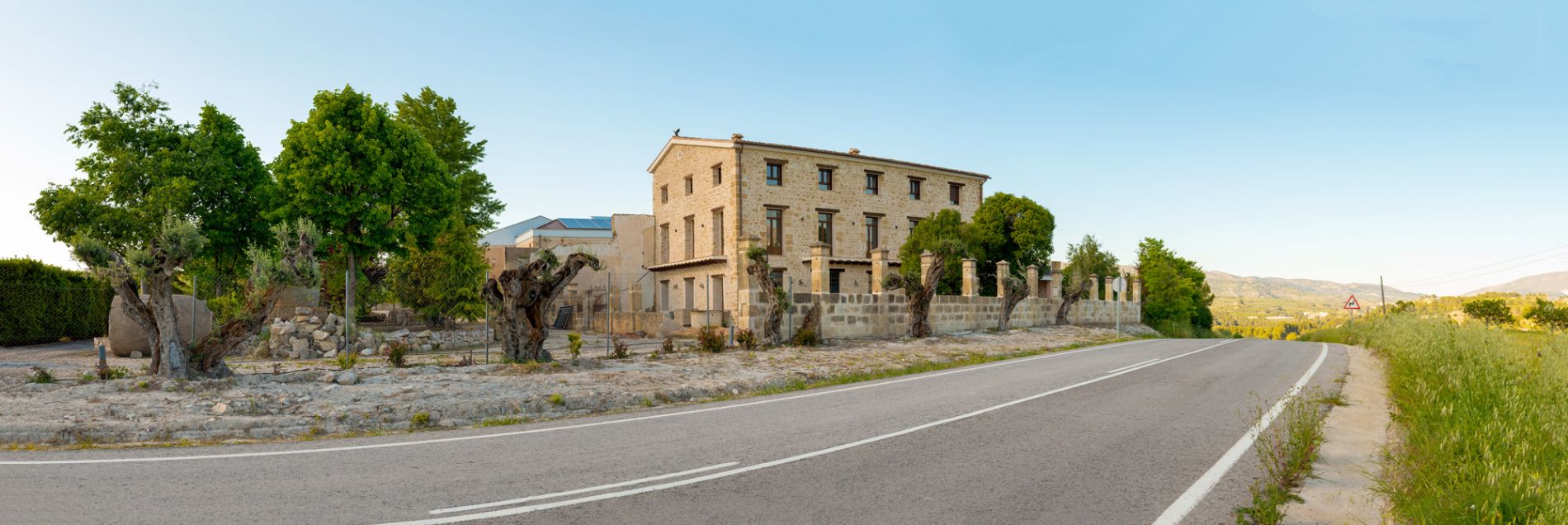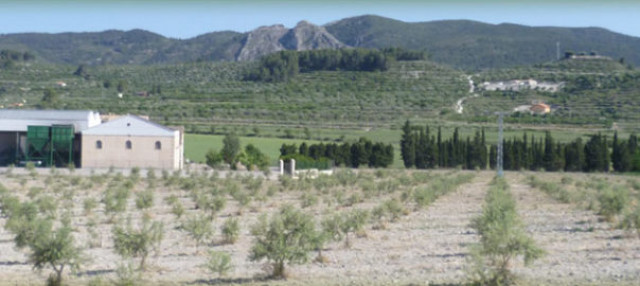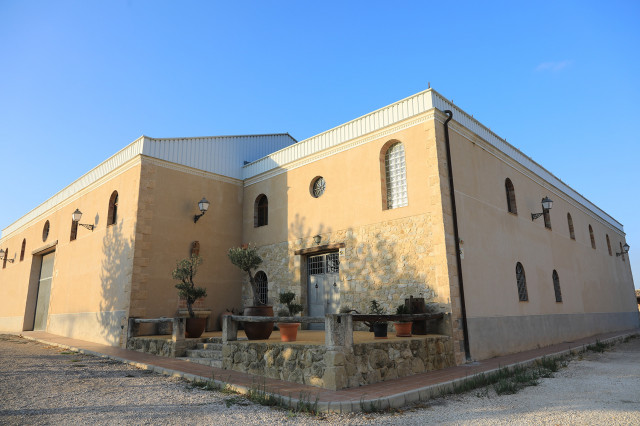About us
BRIEF COMPANY HISTORY
Mr José Ribes Seguí is the holder of the first opening licence, dated November 2, 1924, although the activity had most likely been developing for a long time. This licence is documented because all industries were bound to register by the legal provisions and regulations of that time.
In this first period we offered toll milling services, i.e. farmers brought their own olives and paid for them to be milled in the olive oil mill, then they took the oil back home either for consumption or marketing purposes.
In 1943, after the Spanish Civil War, Mr José María Ribes Sales and his son, Mr José Ribes Senabre, carry out the latest innovations of the time, such as complete electrification in the processes, washing olives in running water before milling them, dry walls and hydraulic presses. The olive oil mill offers less and less toll grinding services and turns into a so-called industrial olive oil mill, i.e. it purchases olives, mills them and sells the oil bottled.
THE BEGINNING
In 1985 the first computerization process takes place: a storage, billing and accounting software. The packing shed is built in order to market the produced oil, and the following trade marks are registered:
- “Troncal” for virgin olive oil.
- “Ribes-oli” for olive oil.
- “Molon” for olive-pomace oil.
- “Ribesol” for refined sunflower oil.
- “Soplón” for refined seed oil.
Mr José Ribes Senabre retires in 1993, and the company turns into an Agricultural Processing Company in order to continue its activity and to have direct control over the 83.40 ha of cultivated olive grove, as well as over the oil production and marketing.
In 1995 the olive oil mill is completely redesigned and certified as organic, due to the environmental minimization. Moreover the latest energy, technological electronic and mechanical innovations of the time are introduced; storage tanks and the laboratory facility are changed, and the theoretical milling capacity reaches 90,000 kg/24 hr.
In 1996 organic extra-virgin olive oil -from the company certified land– starts being produced under the trade mark “Beniqueis“.
In mid-2000 the production of organic extra-virgin olive oil from a single olive variety is intended to be increased. For that purpose “El Mas de la Casa Blanca” is purchased, and this trade mark is registered. The most planted cultivar here is “arbequina“.
Later in the year 2001 the packing shed is enlarged. Underground and stainless steel storage tanks and a new packaging line are also installed.
On April 16, 2007 the company is certified for its integrated quality and environmental management system, based on UNE-EN ISO 9001-2000 and UNE-EN ISO 14001-2004 international standards.
On November 1, 2007 the new olive oil mill in “El Mas de la Casa Blanca” opens to meet the following goals:
- Closeness to raw materials, and a milling capacity of 192,000 kg/24 hr.
- Maximum accessibility.
- Maximum space in the facilities.
- Minimizing nuisances to our neighbours by moving away from residential areas.
- Introduction of the top technological innovations concerning information technology, electronics, automatisms, mechanics, oil storage, energy, heating, purification, recycling and environment.
- In 2009 the warehouse is redesigned, and old storage tanks are replaced with stainless steel ones with a storage capacity of 800 tons.
- Highest health and safety at work.
OUR COMPANY TODAY
RIBES-OLI, S.A.T. (Agricultural Processing Company), located in Beniardá, is devoted to the cultivation of organic and conventional olive groves. During olive season (November to March) the company collects olives from local farmers, and also purchases them from certain suppliers.
In the olive oil mill olives are milled and olive juice is subsequently extracted, packed and marketed.
From April to October RIBES-OLI, S.A.T. markets different categories of oil.
RIBES-OLI, S.A.T. packs and markets oil under different designations (according to oil type).
The company consists of nine people -although staff may increase to sixteen people during olive season- who take care of milling, land area coordination, packing, distribution, as well as purely administrative tasks.











